
I was recently reminded of that old saying: "Up goes a guinea, bang goes sixpence and down comes half a crown." This refers to historical costs associated with shooting a pheasant in Victorian and Edwardian times. If you converted those amounts, based on how much they were worth in 1900, into 'today's money', the saying would go: "Up goes £79.80, bang goes £1.95 and down comes £9.77." But a gamedealer these days wouldn't give you anything like that, and cartridges are expensive but they aren't £1.95 a go. So is shooting today actually cheaper?
It is important to realise the difference between the cost of putting a bird over the Guns and the actual cost of each bird shot, the former being the total cost divided by the number of birds released and the latter your total costs divided by the number of birds shot. With a heavy reliance upon wild stock, our Edwardian example must have referred to total costs divided by what was hanging in the game larder. These days most of what is shot is released.
Costs come in three forms - fixed, variable and opportunity. Fixed costs are those that remain constant despite output, like whether you put 1,000 or 7,000 birds out, your keeper and his house. Variable costs alter depending upon output - more birds, more feed, higher vet costs. The total cost of each bird released is largely down to management and competence. The cost of each bird shot varies - it reflects both release costs and percentage returns.
Costs vary from one shoot to another. Economies of scale, competence and topography all influence performance and return.
This story is from the {{IssueName}} edition of {{MagazineName}}.
Start your 7-day Magzter GOLD free trial to access thousands of curated premium stories, and 9,000+ magazines and newspapers.
Already a subscriber ? Sign In
This story is from the {{IssueName}} edition of {{MagazineName}}.
Start your 7-day Magzter GOLD free trial to access thousands of curated premium stories, and 9,000+ magazines and newspapers.
Already a subscriber? Sign In
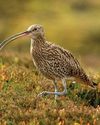
United we stand
Following United Utilities' decision to end grouse shooting on its land, Lindsay Waddell asks what will happen if we ignore our vital moors

Serious matters
An old gamebook prompts a contemplation on punt-gunning
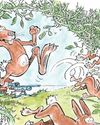
They're not always as easy as they seem
While coneys of the furry variety don't pose a problem for Blue Zulu, he's left frustrated once again by bolting bunnies of the clay sort
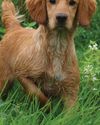
Debutant gundogs
There's lots to think about when it comes to making the decision about when to introduce your dog to shooting
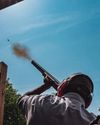
When the going gets rough
Al Gabriel returns to the West London Shooting School to brush up on his rough shooting technique

The Field Guide To British Deer - BDS 60th Anniversary Edition
In this excerpt from the 60th anniversary edition of the BDS's Field Guide To British Deer, Charles Smith-Jones considers the noise they make
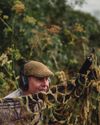
A step too far?
Simon Garnham wonders whether a new dog, a new gun and two different fields in need of protection might have been asking too much for one afternoon's work
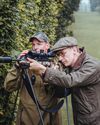
Two bucks before breakfast
A journey from old South London to rural Hertfordshire to stalk muntjac suggests that the two aren't as far detached as they might seem
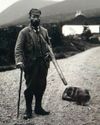
Stalking Diary
Stalkers can be a sentimental bunch, and they often carry a huge attachment to their hill

Gamekeeper
Alan Edwards believes unique, private experiences can help keepers become more competent and passionate custodians of the countryside